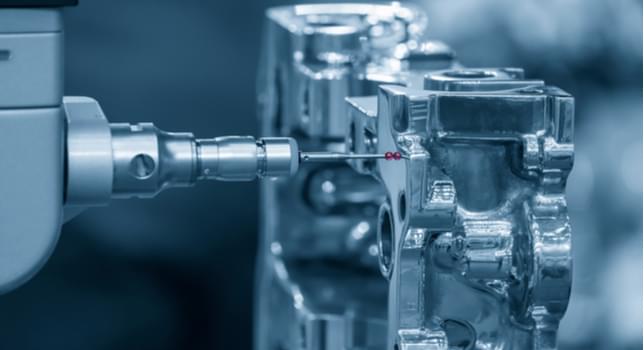IATF 16949 Certification
The IATF 16949:2016 standard outlines rigorous requirements for automotive industry auditors, which we carefully adhere to. Smithers is one of the few United States-based auditing certification bodies approved by the IATF to certify companies to IATF 16949.
Request a quote today to benefit from our extensive IATF 16949 expertise.
Automotive Auditors Dedicated to IATF 16949 Certification
We require all our automotive auditors to undergo thorough training, testing and re-qualification to comply with IATF 16949 certification specifications. Per IATF 16949 requirements, each Smithers IATF 16949 standard auditor:
- Has conducted at least six ISO 9001 third-party audits in manufacturing industries, serving as audit team leader for at least three audits
- In the past 15 years, has achieved four years of full-time appropriate practical experience (including two years dedicated to quality assurance or quality management) in an applicable organization
- Has observed at least one complete IATF 16949 third-party audit lasting at least two days
Our automotive industry auditors demonstrate extensive knowledge of the automotive process approach to auditing.
What Is the IATF 16949:2016 Standard?
Originally designated ISO/TS 16949, the IATF 16949:2016 standard is the quality standard for the global automotive community. Some people still reference automotive ISO standards, but IATF 16949 is the current governing standard for the auto industry. It outlines best practices for developing, manufacturing, installing or servicing automotive products.
The International Automotive Task Force (IATF) developed the standard with unprecedented input from the automotive industry, including auditors, automakers, suppliers and organizations like the Automotive Industry Action Group. The result is a robust standard that explicitly addresses numerous issues related to auto-making.
Similarities Between IATF 16949 and ISO 9001
IATF 16949 is based on ISO 9001 and comprises all of the requirements laid out in that standard. Like ISO 9001, the automotive quality standard covers 10 sections, including:
- Context of the organization
- Leadership
- Planning
- Support
- Operation
- Performance evaluation
- Improvement
Dissimilarities Between IATF 16949 and ISO 9001
IATF 16949 requirements vary significantly from ISO 9001 because of the emphasis on auto-related specifications. The automotive quality standard is unique in its inclusion of customer-specific requirements related to each of the major automakers. Furthermore, IATF 16949 goes beyond ISO 9001 and elaborates on:
- Conformance of products and processes
- Process effectiveness and efficiency
- Risk analysis, preventative action and contingency plans
- Plant, facility and equipment planning
- Equipment calibration
- Laboratory requirements
- Confidentiality
- Supplier monitoring
- Identification of statistical tools
- Error proofing
- Warranty management systems
These are just a few examples of the numerous differences between the automotive quality standard and ISO 9001.
What Documentation Is Required for an IATF Audit?
Documentation is at the core of any quality management system, and IATF 16949 is no exception. The automotive quality standard requires a wide range of documents, touching on every phase of an IATF audit. A sampling of IATF 16949 documentation includes:
- Preventive action record
- Contingency plan
- Records of customer acceptance of alternative measurement methods
- Process for managing calibration/verification records
- Registry of customer complaints
- Procedure for design and development
- Documented product approval
- Documented process for problem solving
Benefits of IATF 16949 Certification
At its most basic level, IATF 16949 certification is table stakes for any automotive industry supplier — major automakers require certification as a prerequisite for their vendors. Auto suppliers that pursue IATF 16949 certification also take advantage of the benefits of ISO 9001 certification, such as reduced waste, increased productivity and higher profits.
But the benefits of an IATF audit run much deeper than that. IATF 16949 certification provides significant advantages like:
- Increased credibility — Certification creates an immediate sense of trust among potential customers that you can get the job done.
- Better customer satisfaction — This is crucial because increased customer satisfaction leads to higher rates of customer retention, which directly impacts your bottom line
- More employee engagement — Increased engagement gives employees ownership of managing and improving the processes they develop.
- Continual improvement — This is a core quality management benefit that ensures your company continues to move forward.
Trust Your IATF 16949 Certification Needs to Smithers
You can rely on Smithers automotive industry auditors to deliver a rigorous, comprehensive IATF audit of your operation. Our automotive auditors thoroughly understand IATF 16949 requirements and provide the feedback you need to achieve IATF 16949 certification. Request a quote today to start your journey toward certification.
Articles Related to IATF 16949:2016


